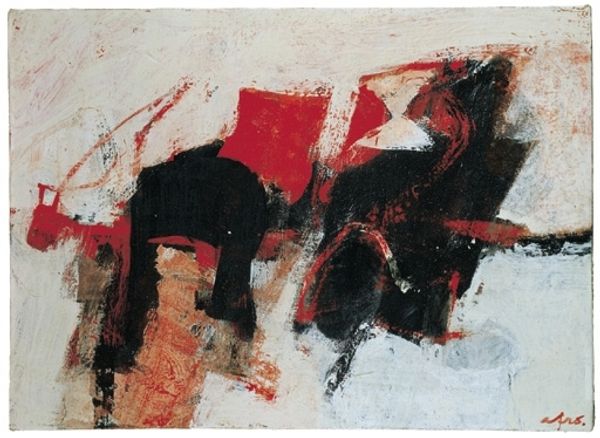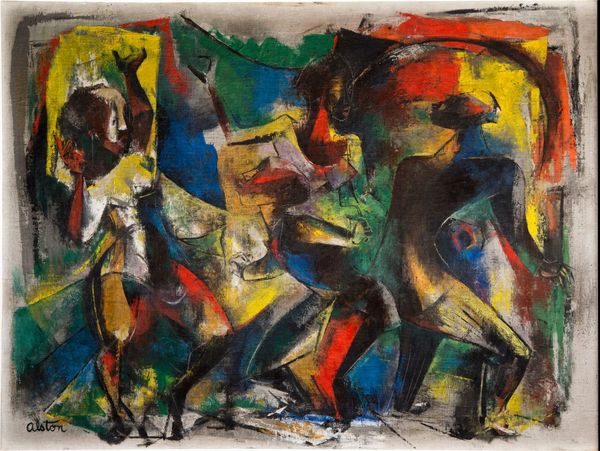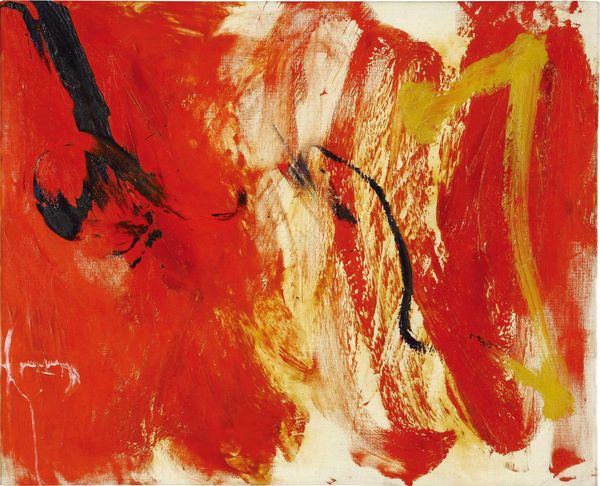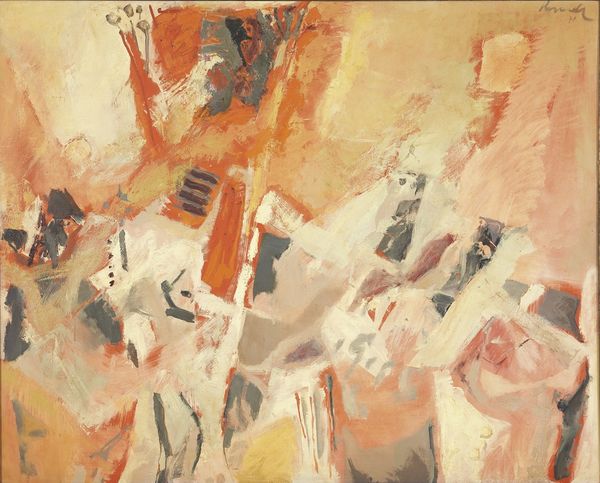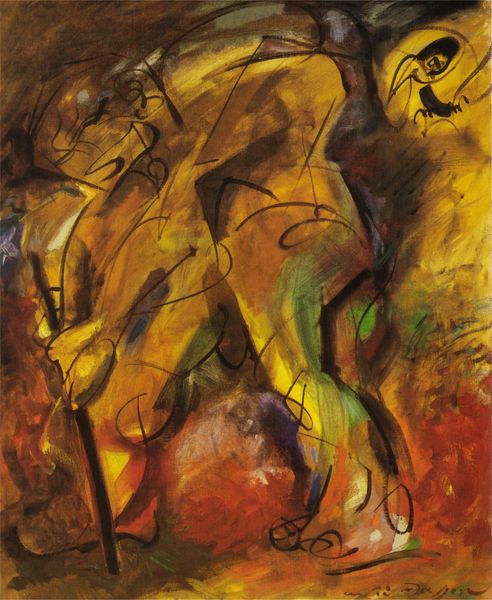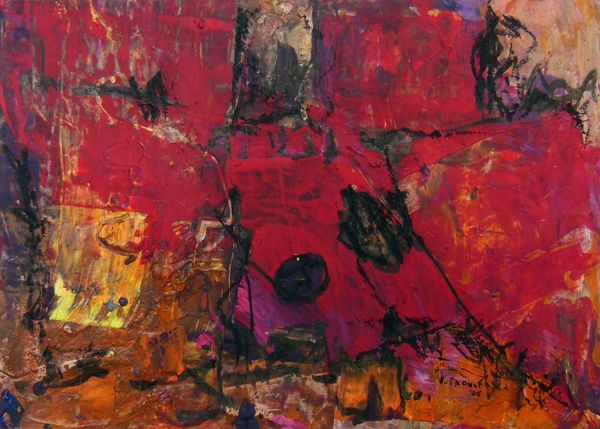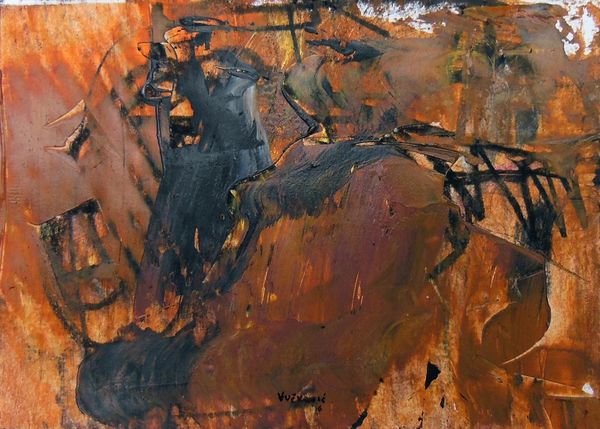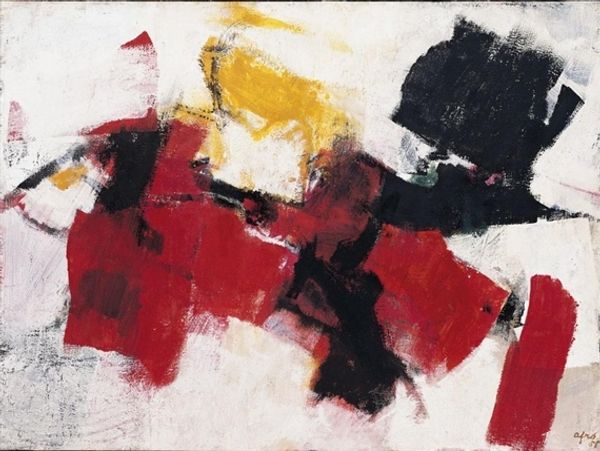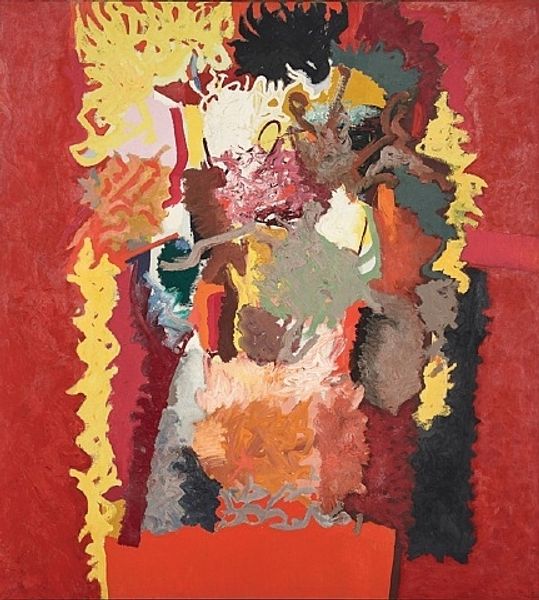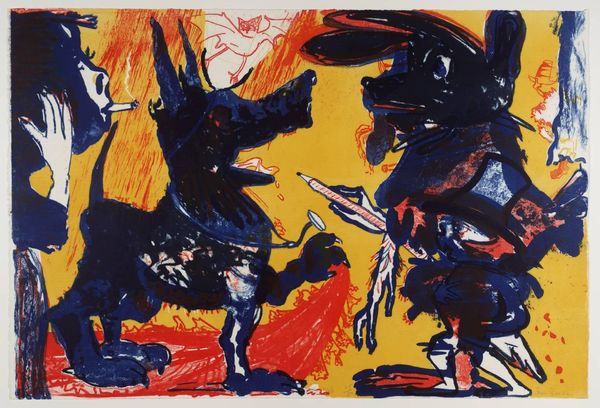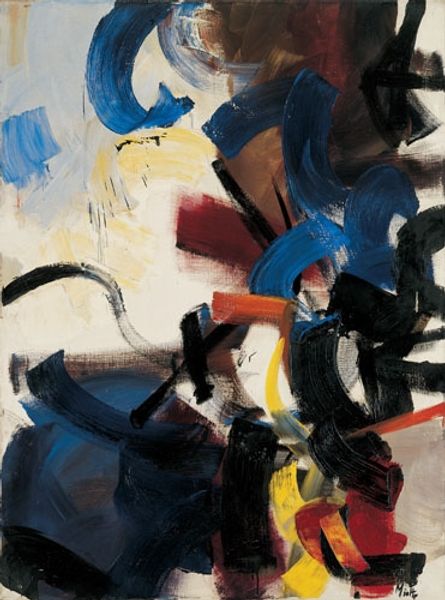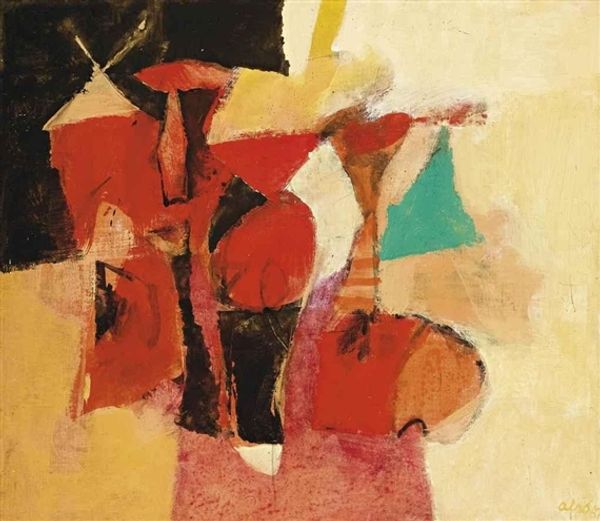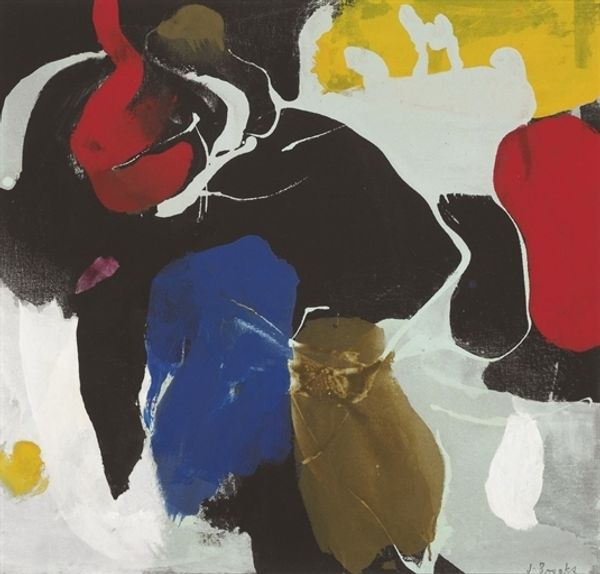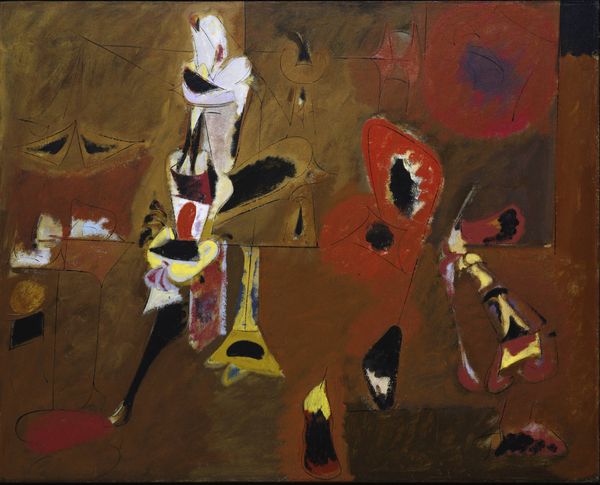
#
impressionist
#
abstract expressionism
#
abstract painting
#
possibly oil pastel
#
fluid art
#
acrylic on canvas
#
paint stroke
#
munch-inspired
#
impressionist inspired
#
expressionist
Copyright: Afro,Fair Use
Curator: This striking work before us is Afro's "Porto delle galere," painted in 1964. It’s an evocative abstract piece. What's your initial reaction? Editor: Visually arresting! There’s a raw energy here, a tension created by the bold contrast of those assertive black forms against the warm red and yellow ground. It feels almost confrontational, a far cry from tranquil landscapes. Curator: Indeed. Consider how black, throughout art history, signifies not just darkness, but also authority, power. In contrast with the visceral, emotive reds, we're presented with conflicting energies, possibly alluding to struggles. Editor: I'd say you're right. When you pair that historical reading with Italy's post-war landscape, it screams political and social upheaval. Afro, like many of his contemporaries, grappled with rapid modernization and the shadows of fascism. I find it a fascinating, ambiguous response. Curator: Note how Afro masterfully leaves some areas bare, raw canvas showing through. It's not a complete obliteration; there's a dance between revealing and concealing. That's so crucial in conveying feeling, suggesting fragmented memories. Editor: Absolutely! The deliberate incompleteness is where the narrative lives. Are those supposed to be galleys he's evoking? They feel more like shattered hulks to me, reminders of histories we'd rather bury, rendered visible here. And who benefitted from that history of colonialism that galleys bring to mind? Curator: Galleys evoke for me a sense of time and journey, connecting the piece to Afro's ongoing exploration of movement, experience, memory. Do you think that context shifts the visual weight for us? Editor: It definitely does. We're forced to confront not just aesthetics but also ethics. This seemingly abstract expression, with closer viewing, feels rooted in a very specific historical reality that had material impacts for particular peoples. It's not "just" about painting, is it? Curator: Not at all, but I appreciate how he wields these tensions without providing easy answers, embracing a space of complex and conflicting identities. Thanks for guiding our reflections today. Editor: Likewise! It's in those complex spaces that the richest dialogues emerge and push the status quo; this image will stay with me a while, challenging and inspiring.
Comments
No comments
Be the first to comment and join the conversation on the ultimate creative platform.
